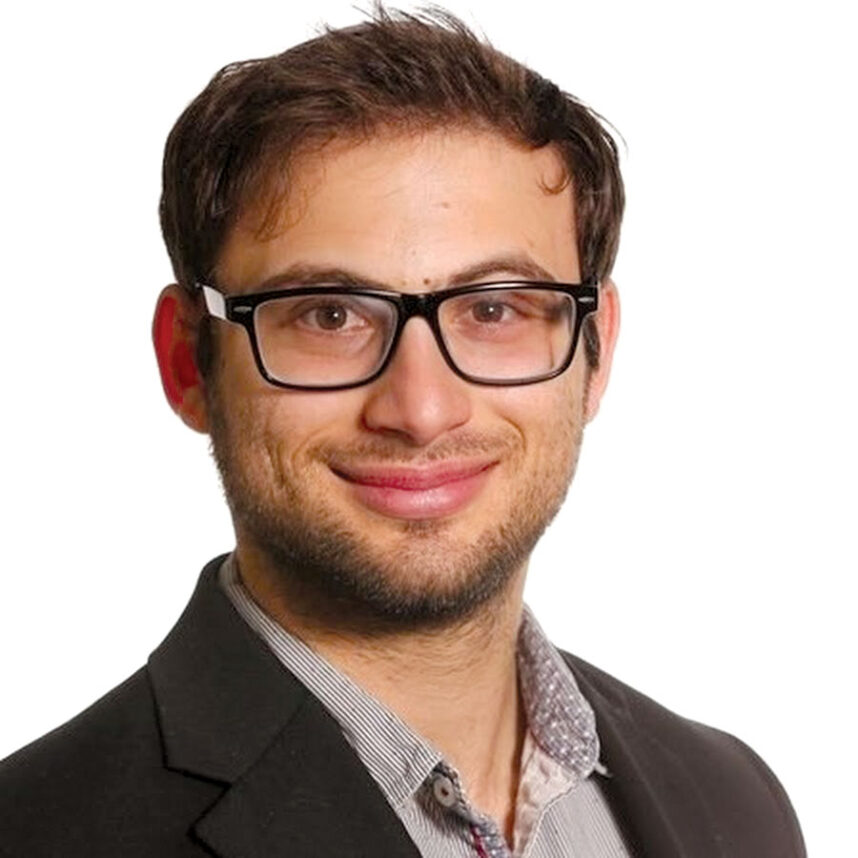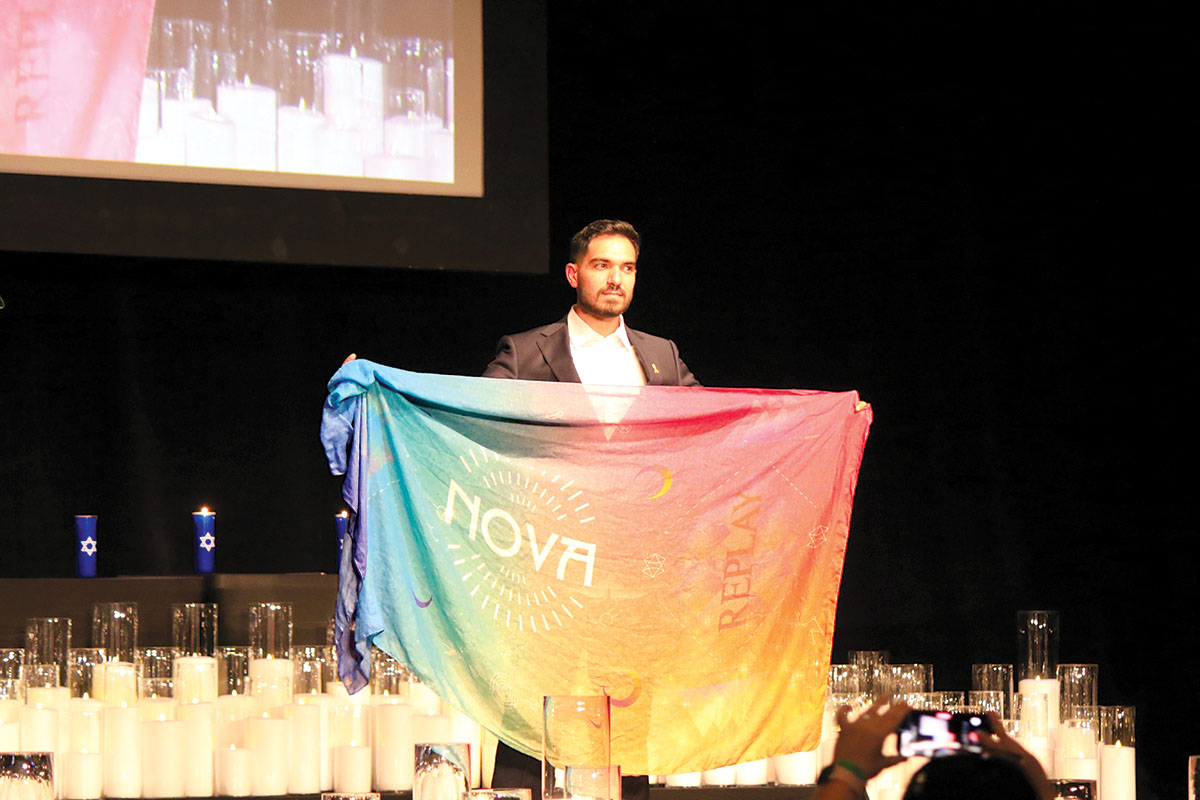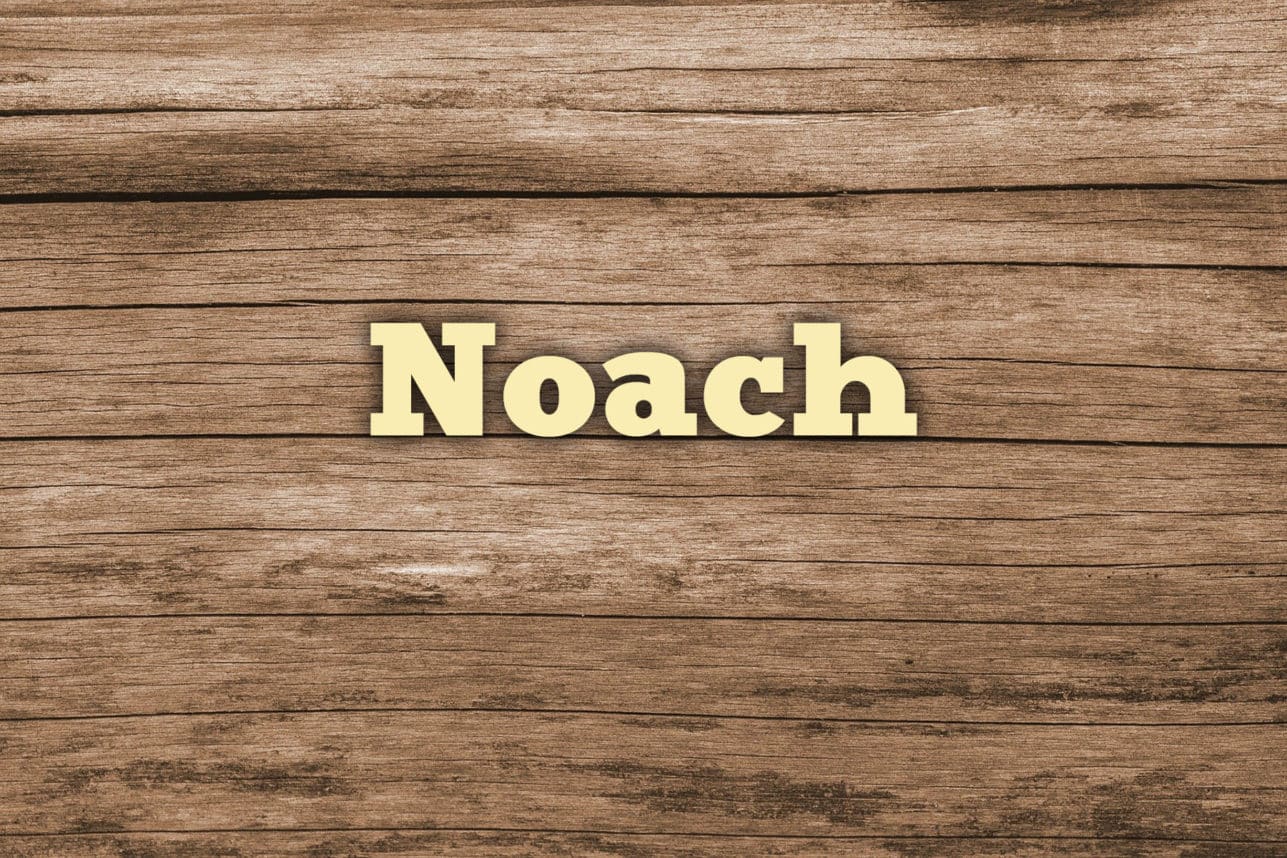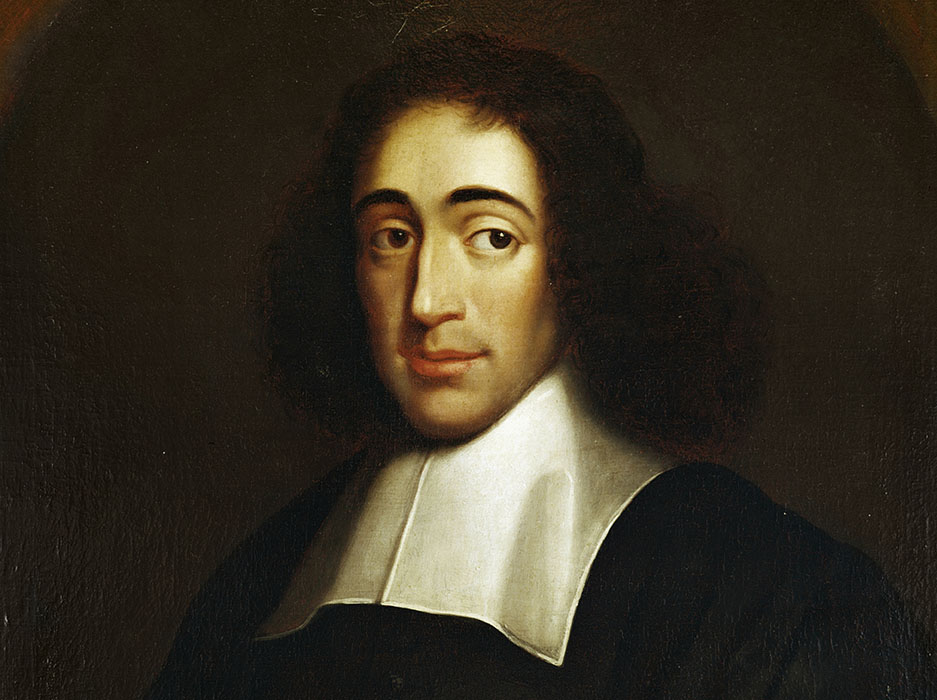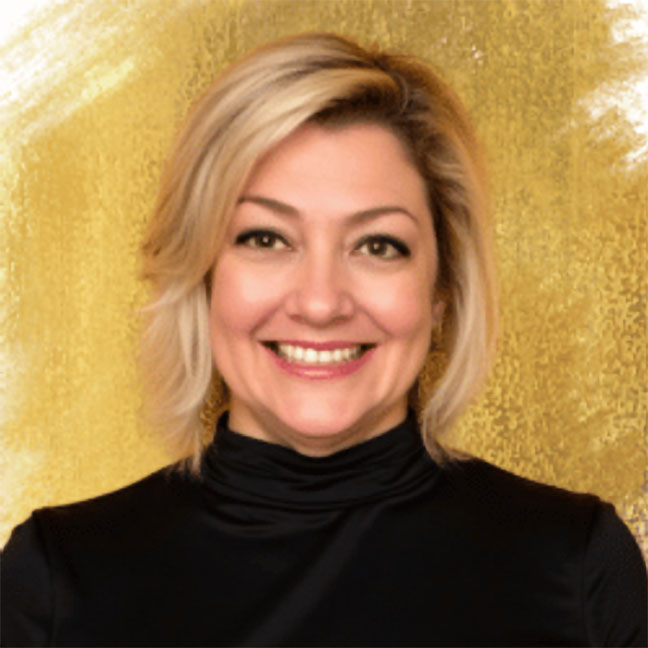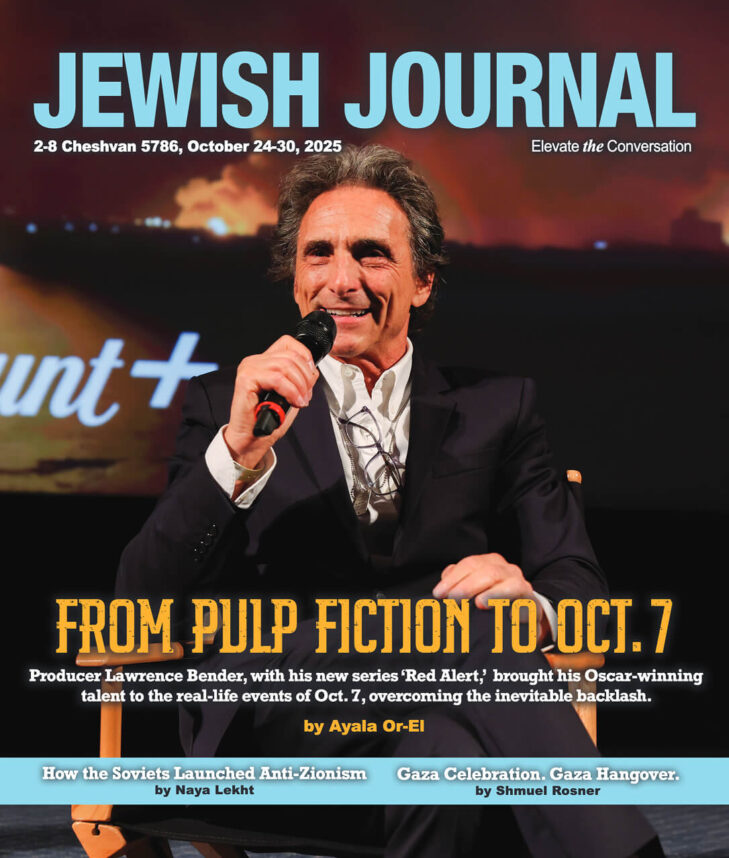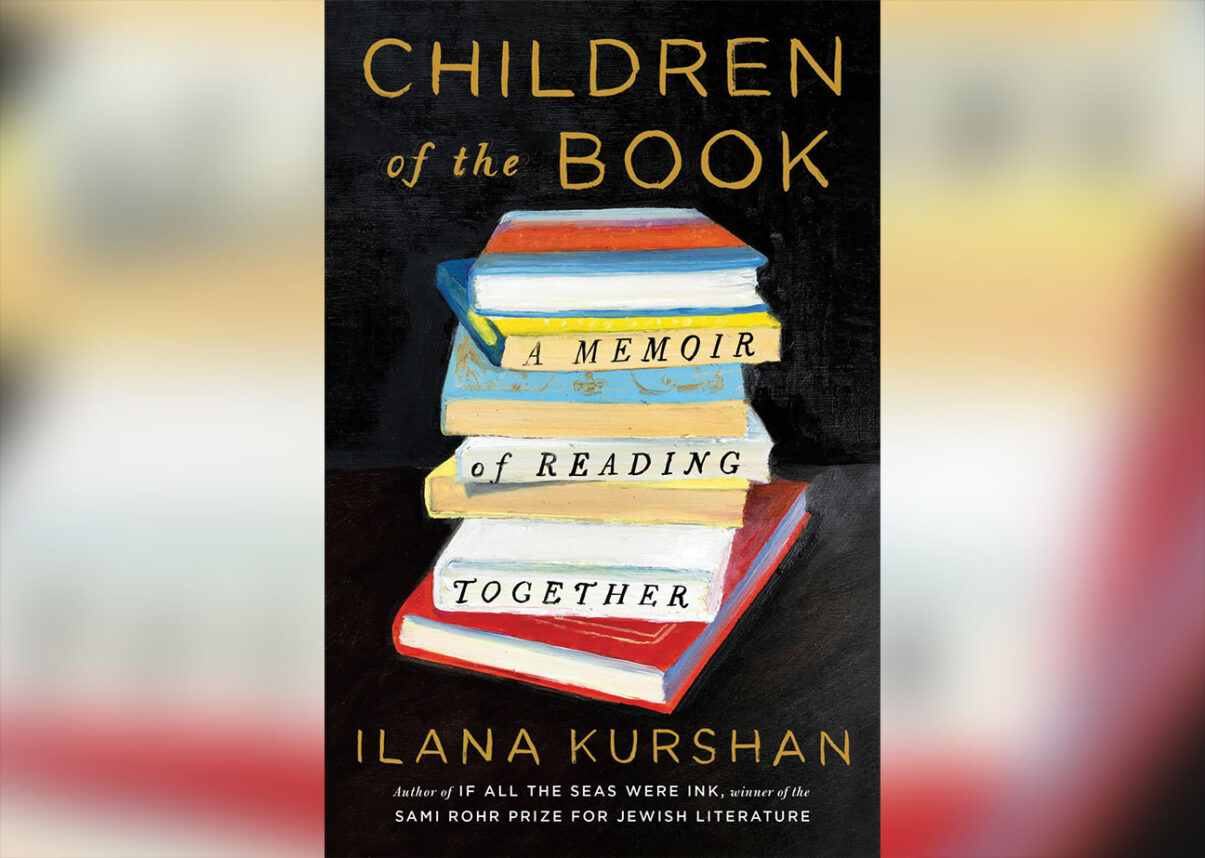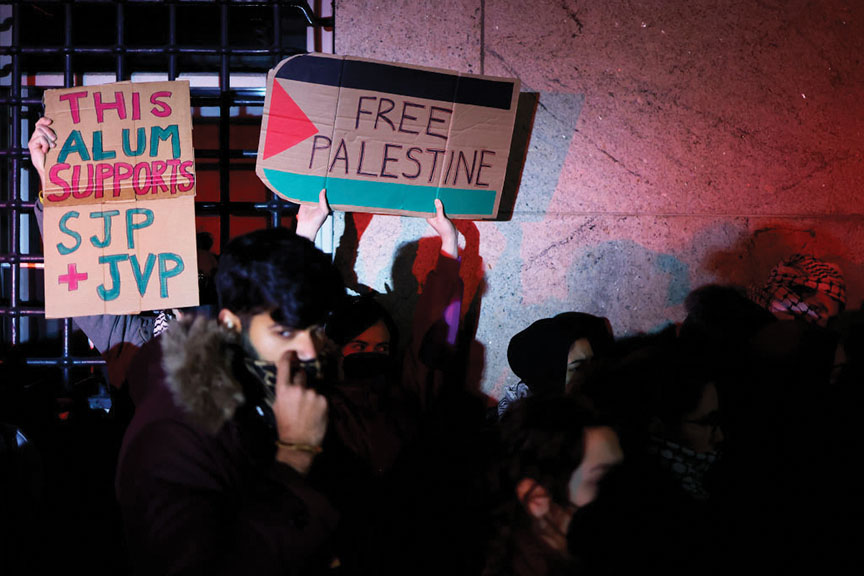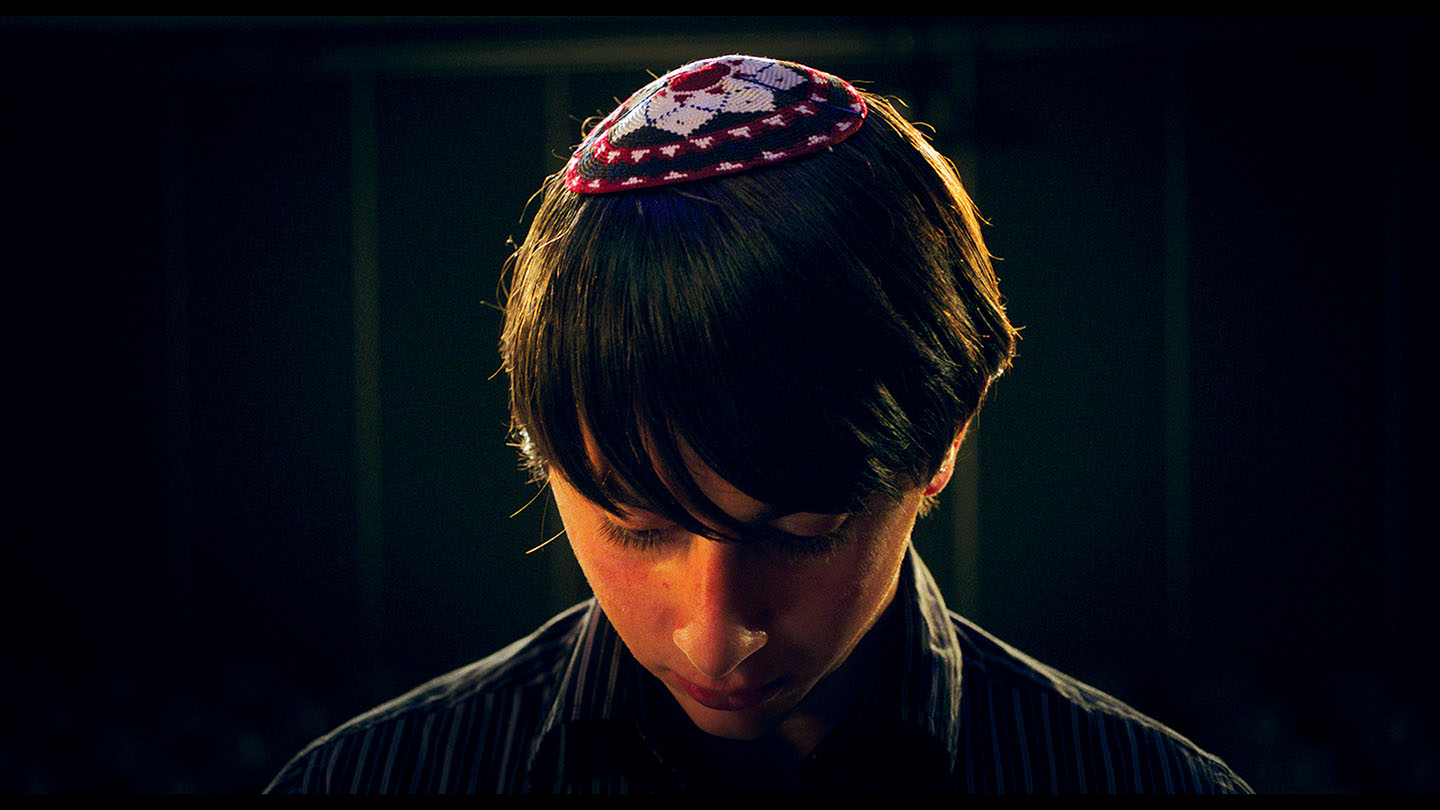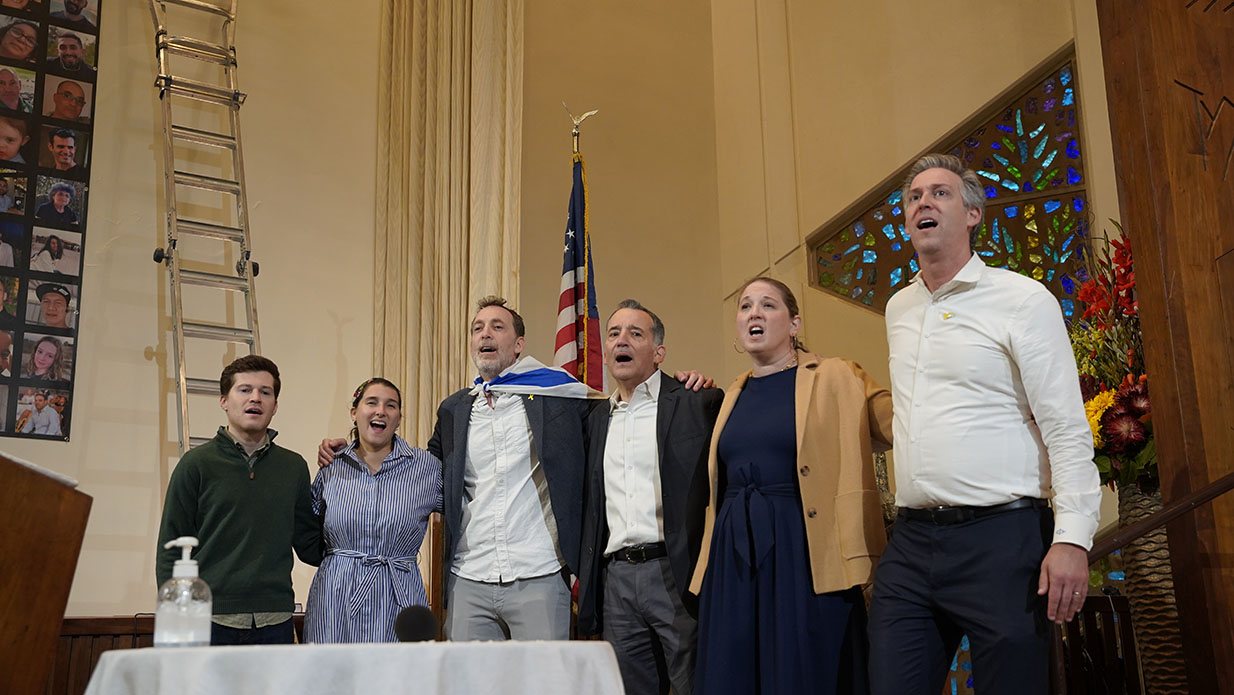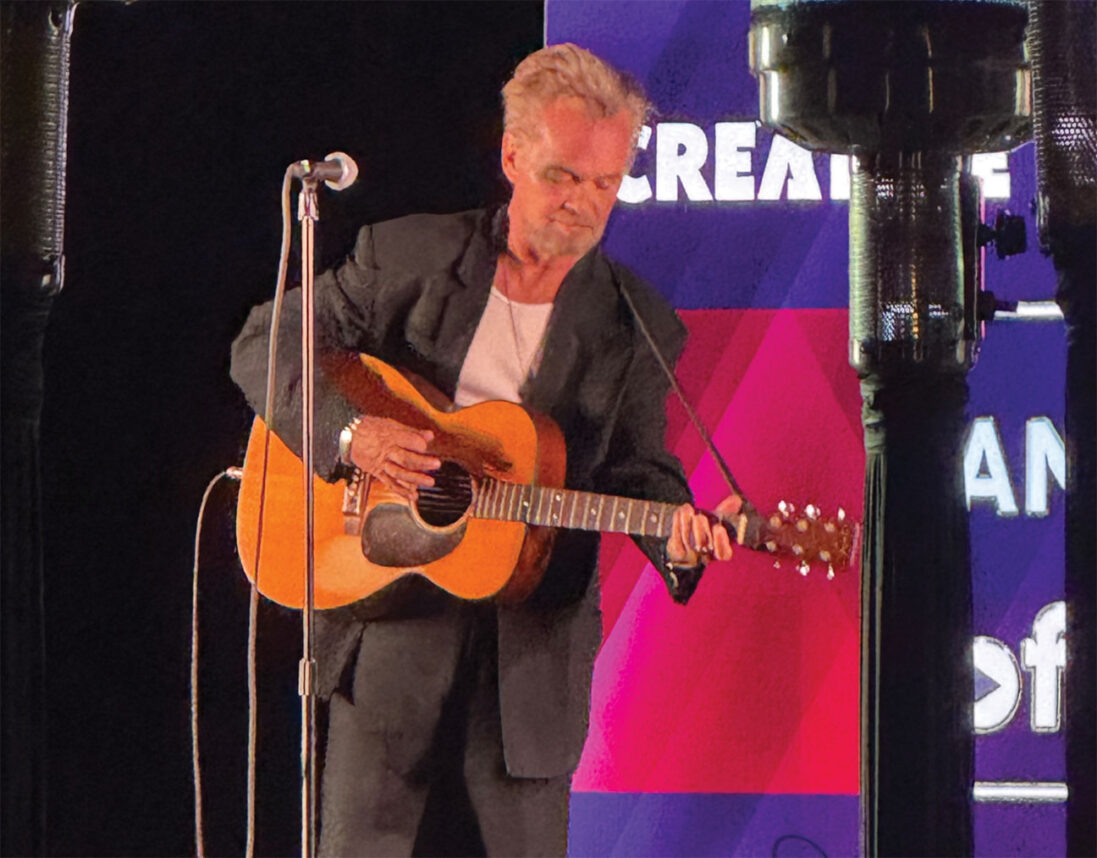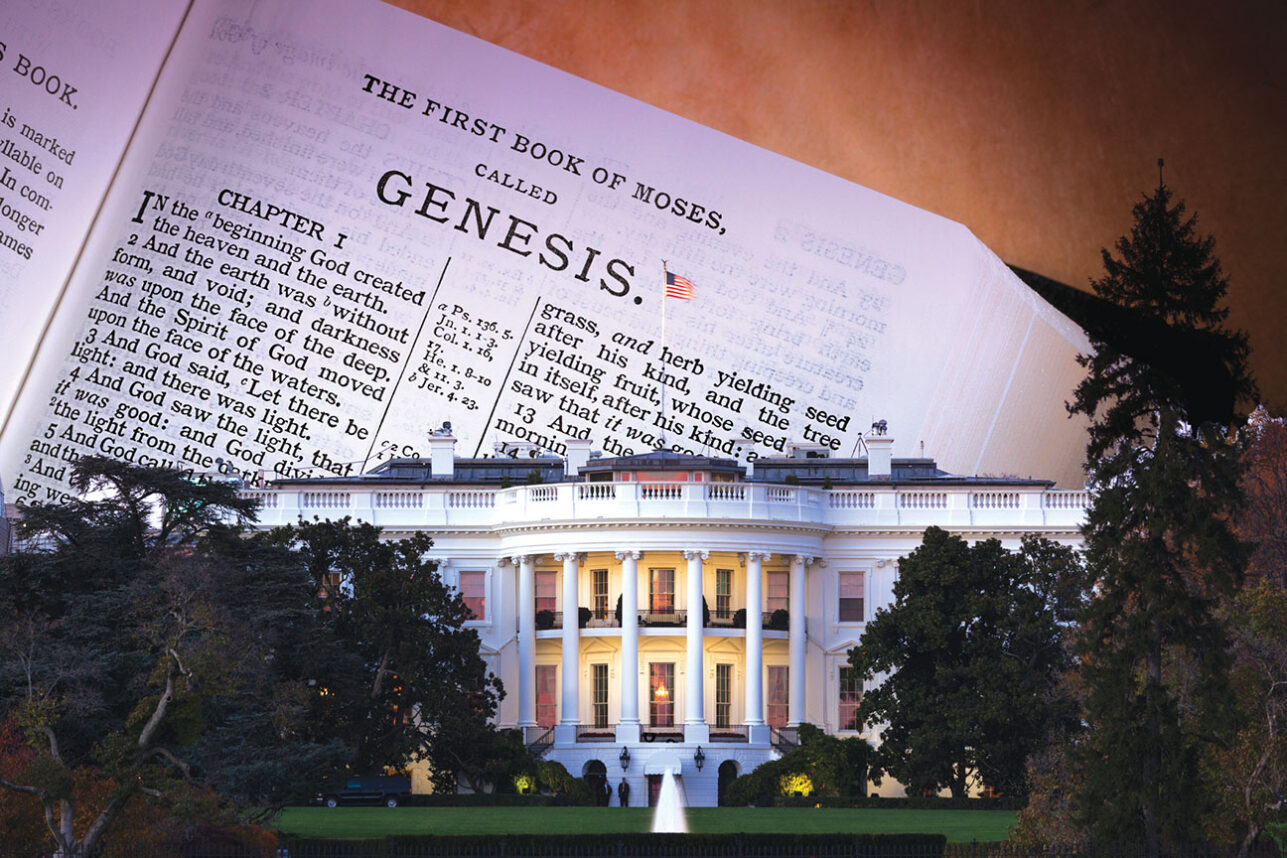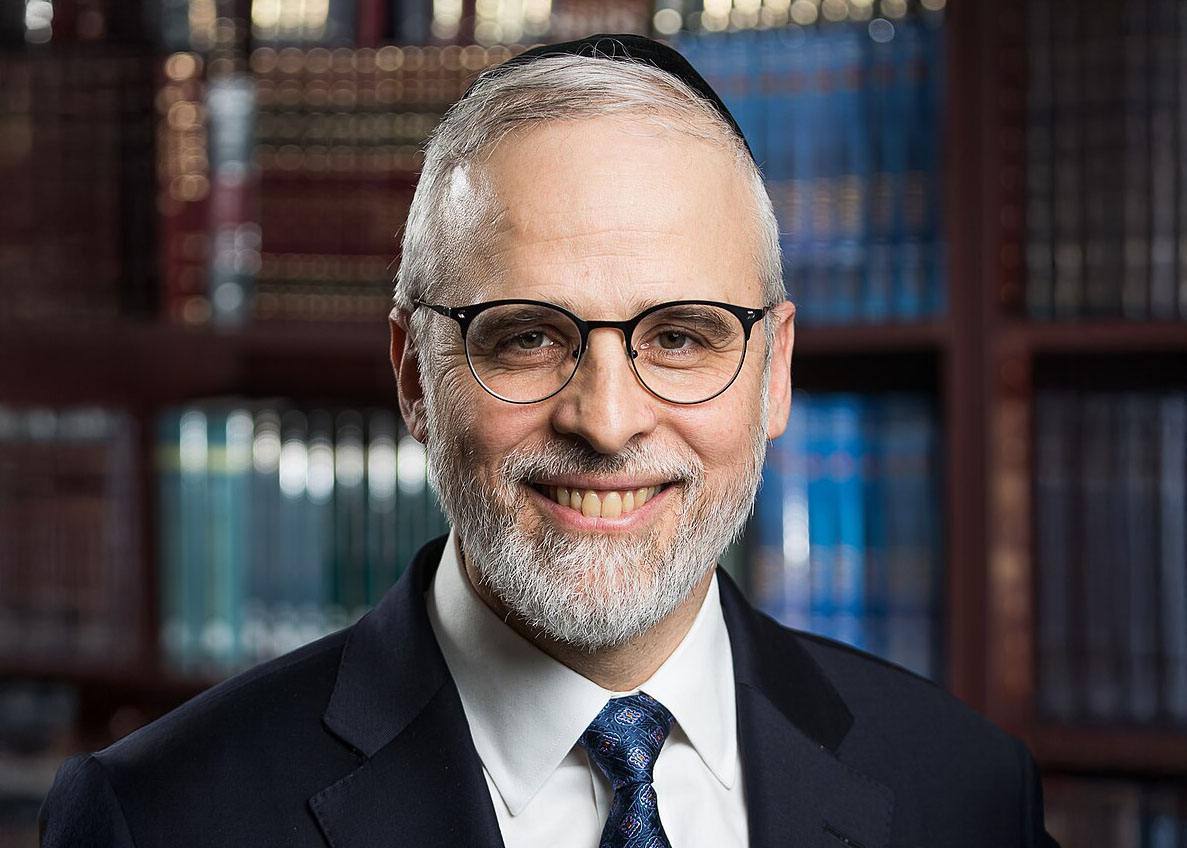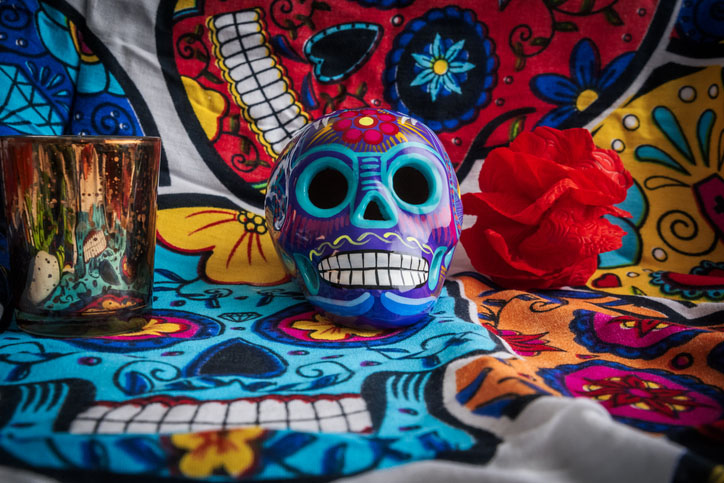Rabbi Chaim Seidler-Feller’s passion, energy and outspokenness haven’t changed much over the past four decades, but his surroundings certainly have.
Nowhere is this more apparent than in the modest office he now inhabits. It sits one floor above the spacious room he occupied for more than a dozen years after the 2002 completion of construction of the $12 million Yitzhak Rabin Hillel Center for Jewish Life at UCLA, a project he spearheaded. The bigger office now belongs to Rabbi Aaron Lerner, the new executive director of Hillel at UCLA. Lerner officially assumed the position last July, when Seidler-Feller, after leading Hillel since 1975, became director emeritus.
Seidler-Feller’s day-to-day involvement with Hillel now is less intensive — at least on paper. He said he’ll be at his office most afternoons for the foreseeable future, as he works to create an endowment to supplement Hillel’s $2 million annual budget. Seidler-Feller won’t yet specify the campaign goal but, he said it will alleviate the necessity to separately fundraise every time Hillel wants to create a program.
What exactly Seidler-Feller, 68, will do after he finishes establishing the endowment is anyone’s guess — he’s not saying. But in a recent 90-minute interview in his new office filled floor-to-ceiling with books, the rabbi spoke at length about the transformative changes he’s witnessed since the 1970s, both among Jewish college students and at UCLA generally. He talked about the challenges posed by Jewish illiteracy, anti-Israel sentiment and why a new era requires a new leader for Hillel, which serves a Jewish student population of about 2,800.
“It was time for me to move on, and it was also time for someone who had a different set of skills to come in to take over the Hillel,” Seidler-Feller said.
Seidler-Feller’s four decades leading Hillel — which will be celebrated at a Jan. 31 symposium at UCLA and a gala at the Skirball Cultural Center — were marked mostly by growth. In addition to building Hillel’s 25,000-square-foot building, replete with a kosher kitchen, his accomplishments include creating the Streisand Center for Jewish Arts (now the Dortort Center for the Arts), bringing the Jewish Learning Initiative on Campus — an Orthodox learning program — to UCLA, and hosting countless Shabbat meals and services at the Westwood home he and his wife, Doreen, a psychologist, share.
Just as noteworthy is his energetic — though at times controversial — personality. In 2003, while speaking with pro-Palestinian protestors after a speech on campus by renowned attorney Alan Dershowitz, Seidler-Feller got into an argument with Rachel Neuwirth, a freelance reporter and pro-Israel activist who allegedly called him a “kapo.” Accused of verbal and physical assault, Seidler-Feller was ordered to take an anger management course. And in a 2007 letter made public as part of a closed settlement, he apologized for hitting, kicking and scratching Neuwirth, and said his actions “contradicted the pluralism, peace and tolerance about which I so often preach.”
During his interview with the Journal, the philosophizing rabbi, educator and intellect jumped from topic to topic. Regarding Jewish students at UCLA, he seems most concerned about a lack of connection with and knowledge of religious Judaism. He said it has been “difficult to watch” the widespread unfamiliarity with the traditional Jewish prayer book.
“I’ve been imagining this scenario for 10, 15 years, which is: If I met a Jewish student leader on campus, I would want to ask him, ‘Why are you Jewish?’ ” Seidler-Feller said. “I fear that I wouldn’t get a coherent answer, or that he or she would be tongue-tied. The other question that I would ask is, ‘Name five Jewish books for me,’ and there’s the Bible and Talmud, so that means you only have to name three. And I don’t know whether they could get to the third. That’s scary. That’s what worries me.”
Seidler-Feller, who was raised and educated as an Orthodox Jew in Brooklyn, and now identifies with the “Open Orthodox” movement, said this lack of a connection among Jewish students to their religion is why the Orthodox community is both more successful in carrying on Jewish life and in its identification with Israel.
“I think that there is a correlation between their Jewishness and the more passionate support for Israel,” said Seidler-Feller, a graduate of Yeshiva University in New York City.
“I was given the privilege of a very rich and textured Jewish education, and I think that my vision and my goal in life was to transmit as much of that as possible to my students,” Seidler-Feller said. “That’s why it pains me to see when there’s a lack of interest.”
Although most of UCLA’s Jewish students — along with those at most universities — may not be all that engaged with Jewish philosophy, in Westwood, at least, there’s clearly no lack of interest in Hillel. The organization seems to only grow more popular by the year, and its budget has grown for 13 consecutive years. Seidler-Feller’s endowment would help Hillel expand even more, facilitating budget increases without the time-consuming process of grant applications that most nonprofits face.
But, as Seidler-Feller strongly implied, the positive transformation of Hillel over the decades into a place where Jewish students of all denominations — or none at all — feel comfortable hasn’t appeared to correlate with more interest in Jewish learning. This is despite the rabbi’s efforts to teach Jewish texts and philosophy, both at Hillel and as a lecturer at UCLA.
“As I always explain, the most successful prayer service on Friday night is the non-service — the dinner,” Seidler-Feller said.
Another challenge, he said, is the high rate of intermarriage among American Jews, which is reflected on campuses by the many students who come from interfaith families, as well as in the diverse religious backgrounds of students they date.
“It is a disappointment that we don’t have a framework in which we can promote the value of marrying other Jews,” Seidler-Feller said, saying the “leadership of the Jewish community” has placed “constraints” on openly discussing that issue. “I’m not interested in criticizing people for their personal choices. I’m interested in promoting a value.”
How then, does the rabbi think Hillel can make Jewish students less apathetic about Judaism, when it already offers a multitude of learning opportunities, Shabbat dinners and religious programs? Simply, he said, by making Judaism “compelling enough and interesting enough.”
Easier said than done. And even that instinct, Seidler-Feller said, can lead to the “Birthright syndrome” of young Jews expecting to always receive — whether it’s a free trip to Israel or a Shabbat dinner.
“It’s not just Birthright. It would be wrong just to blame it on Birthright,” Seidler-Feller said, also mentioning decisions by campus Chabads to make Shabbat dinners free as another key factor.
“We used to charge for Shabbat dinner, but stopped years ago. No campus group would even consider charging for Shabbat dinner these days. It is vital that we make Judaism available to everybody.”
One way Hillel at UCLA has tried to add giving and self-funding into the mix is by encouraging tzedakah, community service and trips and programs where students are expected to make some financial contribution to the cost.
A passionate and often-outspoken supporter of Israel (Hillel’s building is named after Seidler-Feller’s hero, the assassinated Israeli Prime Minister Yitzhak Rabin), Seidler-Feller has been a Jewish campus leader since just after the Yom Kippur War. He has seen Israel’s reputation on campuses go from being a scrappy underdog and a champion of liberal values to being viewed as a powerful, even oppressive, force. This sea change has created a fissure between Jewish, pro-Israel students and a diverse array of minority groups. After the 1982 Lebanon War, Seidler-Feller said, Israel, and Jews by extension, were no longer viewed within the narrative of victimhood.
“They no longer could identify Israel as an underdog,” he said. “We failed because we didn’t teach why Israel should continue to be supported even when it was no longer the underdog.”
Although still a supporter of a two-state solution and a believer in Rabin’s vision, Seidler-Feller’s outspokenness against the alliance of left-wing, Muslim and pro-Palestinian student groups that oppose Israel, and his support of the American Israel Public Affairs Committee may appear surprising to those who remember him as a peacenik and a founding member of the leftist group Americans for Peace Now. Today, Seidler-Feller said, the task of pro-Israel individuals and groups is to nurture an appreciation of Israel that goes “beyond the suffering and our victimhood.”
The past two years have seen a rise of anti-Israel and even overtly anti-Jewish incidents at UCLA that have made national news, most notably an incident in February 2015 in which undergraduate Rachel Beyda was initially voted down for a student government position by her peers after a student representative asked Beyda how she could remain unbiased as a member of the student judicial board because she is Jewish.
Seidler-Feller believes the diverse array of ethnic and minority campus groups have formed a coalition based around their own narrative of victimhood, and that Muslim and pro-Palestinian groups use that narrative to their advantage against Israel.
“Too much of our political culture revolves around the question of who suffered more and who deserves the perks,” Seidler-Feller said. “And I look to the university to constructively address the issue. In other words, the university is responsible to the extent that it created a diverse environment, and in that diverse environment different communities butt heads daily.”
Hillel has long served as a sort of home and incubator for pro-Israel students at UCLA, particularly the Bruins for Israel group, and Seidler-Feller said he intends to continue serving as a sort of adviser for students seeking his counsel.
“I’m not up at 2 o’clock in the morning as much as I was, but if something’s going on on campus, I’ll text students [to see if they can] meet me in the office,” he said.
He said pro-Israel students at UCLA have learned how to play politics in that environment. Bruins for Israel recently helped push through student government a resolution to no longer consider political resolutions that have no meaningful impact on campus life, which would theoretically prevent a repeat of the November 2014 passage of a resolution endorsing the anti-Israel Boycott, Divestment and Sanctions (BDS) movement. The new resolution, which amended the student government’s bylaws, also states that positions held by one year’s student government are not continued automatically to any other year’s, effectively restricting the endorsement of BDS to the 2014-15 student government.
Even as concerned as Seidler-Feller sounds about the state of Judaism and Israel on the American campus, his career at Hillel has been marked in part by successfully straddling multiple worlds.
So maybe it’s no surprise that, even as outspoken and opinionated as he is, Chaim Seidler-Feller’s transition within Hillel isn’t really a retirement. The energetic activist rabbi isn’t going away any time soon, and he wants to make sure that his energy — and that of other Jewish and pro-Israel activists on campus — is used as intelligently as it can be.
“There are certain political positions that are clearly not pro-Israel, for sure,” he said. “But we have to navigate that very carefully by using our seichel [experiential wisdom]. We have to be able to weigh and measure situations based on their merit and decide how to proceed using an intelligent approach and always with the question in mind, ‘What serves the students?’ We have to consider whether we might alienate students by our move. In the service of trying to promote something positive, are we going to have a negative impact?”
In other words, Seidler-Feller wants Hillel to be like, well, Hillel the Jewish scholar, who, the Talmud related, said the most important lesson of the Torah is to not do unto others what one hates to be done to oneself.
“The question that Hillel has to ask itself: Is it following the inclusive teachings of its eponymous inspiration, Hillel, or of the exclusivist Shammai?” Seidler-Feller said, referring to the leading Jewish sages and talmudic academies of the first century B.C.E. “The Hillel approach is not to reject, but to open up possibilities, to invite in and to carry on the conversation.”









